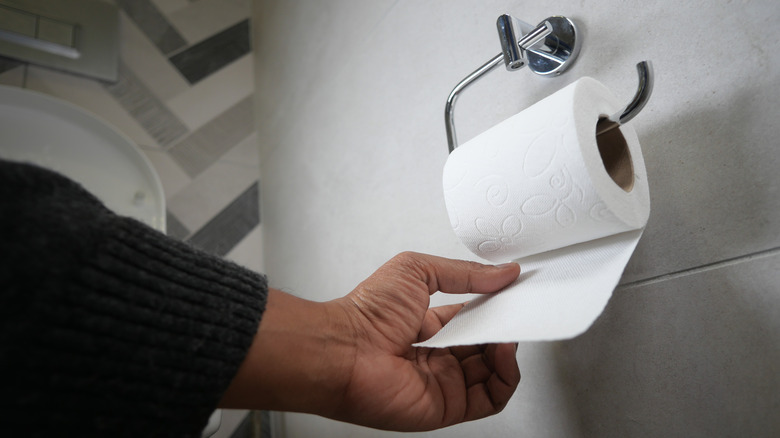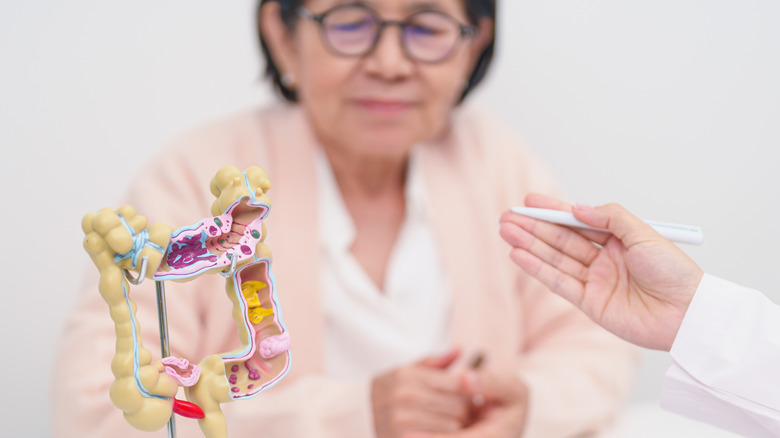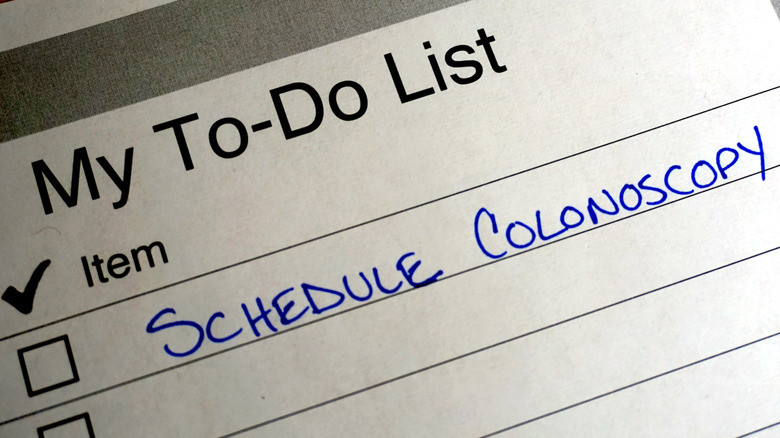The Simple, Non-Invasive Test That May Help Detect Colorectal Cancer Without A Colonoscopy
Around one out of five adults age 50 or older in the United States hasn't undergone a colorectal screening, according to the Centers for Disease Control and Prevention (CDC). And if you're one of them, you may be avoiding a screening because you'd prefer not to get a colonoscopy.
(This is what really happens when you get a colonoscopy.)
A 2012 study in JAMA Internal Medicine revealed that when doctors told their patients to get a colonoscopy, just 38% of patients followed through with the suggestion. That's a disturbingly low percentage, given that colonoscopies have a high rate of detecting colorectal cancer, one of the three most prevalent cancer types. Yet there was a bright spot: When patients were given a choice of colorectal cancer screening options, 67% moved forward — with many choosing less invasive alternatives.
For people who are hesitant to go through with a colonoscopy, a simple, noninvasive test may one day be an option for them: a stool analysis powered by artificial intelligence (AI), discussed in a 2025 study in Cell Host and Microbe.
How the AI stool test can detect colorectal cancer
The test relies on AI to determine the likely presence of colorectal cancer in a stool sample based on the gut bacteria found in the sample. According to the 2025 study, several bacteria strains have been identified as potential markers for colorectal cancer.
But will this type of early detection work under real-world situations? According to one member of the study team, it already has shown great promise: "Our method detected 90% of cancer cases, a result very close to the 94% detection rate achieved by colonoscopies and better than all current non-invasive detection methods" (per Science Daily).
Though this emerging test hasn't hit the market yet, you may have heard of the other type of non-invasive colorectal cancer screening option that also uses a stool sample that can be collected at home. Advertised under the brand name Cologuard, it's a protocol that searches for DNA changes in your body that are evident in fecal matter. The manufacturer, Exact Sciences, claims that it's 92% accurate in pinpointing stage one and stage two colorectal cancers.
The benefit of early colorectal cancer detection
The only problem is that Cologuard isn't as dependable at discovering precancerous and cancerous polyps. Consequently, doctors often recommend colonoscopies to ensure that any existing polyps are found so they can be removed during or after the colonoscopy examination. Explains Dr. Pankaj Vashi, an expert at City of Hope Cancer Center, "I always tell people that colonoscopy is the only screening test that prevents cancer."
Finding colorectal cancer early can be beneficial: A full 90% of those who receive treatment during early stages of the cancer can expect to be alive at least five years later, per data from the American Cancer Society.
(Read this to know the early signs of colorectal cancer.)
When should you start talking with your doctor about getting screened for colorectal cancer, regardless of what screening method you use? The American Cancer Society suggests that you get your first colonoscopy at age 45, unless you're at a higher risk of developing colorectal cancer due to your family or medical history (e.g., if you've undergone radiation treatments for a different cancer, you may want to get screened for colorectal cancer earlier).


